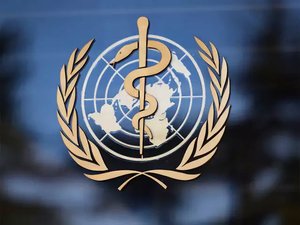By Sam Kayode
About 65 people have died so far since diphtheria started ravaging Borno state this year.
Six hundred and fifty-three suspected cases have been fished out so far from the entire state out of which 41 were positive and 233 negative cases were discovered.
Some of the infected cases have been admitted to primary health centres in Gwange and the msf clinic and are receiving treatments in various clinics within the state so far in other council areas affected.
A media round table held at the Nigerian Union of Journalists (NUJ) maiduguri recently also revealed that 116 cases are still pending in the laboratories waiting so far while 70,000 residents have been vaccinated against the killer disease.
The enlightenment campaign organized by the state primary healthcare agency in conjunction with some partners like unicef and WHO attracted some journalists who said they learnt a lot from the occasion.
From the summation gathered during the session 15 out of the 27 council areas have been badly hit and mapped out as affected areas for maximum enlightenment campaigns to ensure that the prevalence of diphtheria is reduced to the minimum and subsequent deaths.
Risk communication stake holders in conjunction with state immunization officers present advised residents against dropping their guards when it comes to prevention of diphtheria, polio and even measles which has been making some inroads recently in densely populated suburbs of the metropolis.
State Immunization Officer, Maina Modu while giving updates to partners maintained that diphtheria and other communicable diseases spread easily due to peoples’ indifferent attitude towards their health in general.
He regretted that a lot of residents attribute emergencies like diphtheria and cholera to traditional beliefs and as a result do not allow their kids to be involved in immunization.
Sadly some even see vaccination as a means to impose birth control methods on them by the partners and the state government.
“This is why we have quickly conducted vaccination in four high-risk council areas of Mobbar, Jere, MMC and Biu.” he revealed to stem the mortality.
Social and Behaviour Change anchor at the unicef Elizabeth Onitolo, in her presentation titled “Social and Behaviour Change Key Considerations,” revealed that they conducted a survey of peoples attitude toward diphtheria outbreak in Yobe and Borno State and found out some stunning results.
She revealed that the research indicated high level of ignorance on the disease and carelessness about the weight of seriousness that should have been attached to the outbreak especially in Yobe State.
Onitolo actually appealed to the general media to collaborate with all partners to step up sensitization of residents in the state to be more proactive and preventive against all forms of emergencies.
Diphtheria is one of the regions most contagious diseases, usually spread by residents with nasal or throat infection coughing or sneezing which is common at this part of the world due to the savanna breeze.
The unicef presenter also said that measles can also be contracted through crowdy environments where there is inadequate air circulation among infected and non infected residents.
Diphtheria is a serious infection caused by strains of bacteria called Corynebacterium diphtheria that makes a toxin that affects the nose, throat or sometimes skin of an individual and if not managed speedily causes death.
“Contacts with contaminated clothing and objects, droplets from infected person through coughing and sneezing can equally spread the disease” said Modu Kyari who called for caution while giving a vote of thanks to the media.
He noted that most contagious illnesses are rather preventable by frequent hand washing, especially when we use the toilets, maintaining of hygiene and steady immunization for all classes of residents as required by the medical practitioners.
He noted that health workers are equally not exempted from the diseases which is why they must be cautious also.










